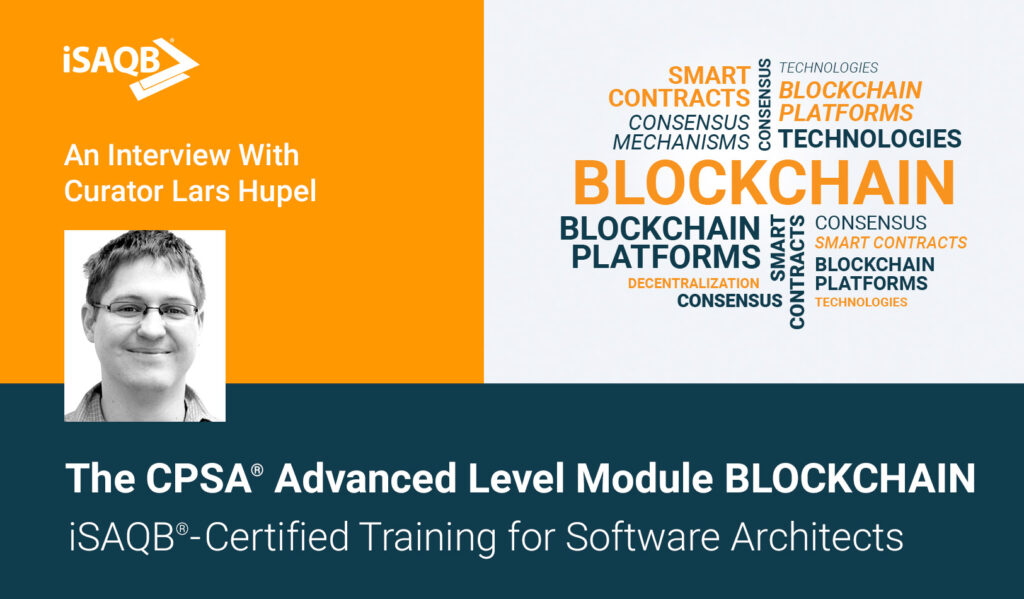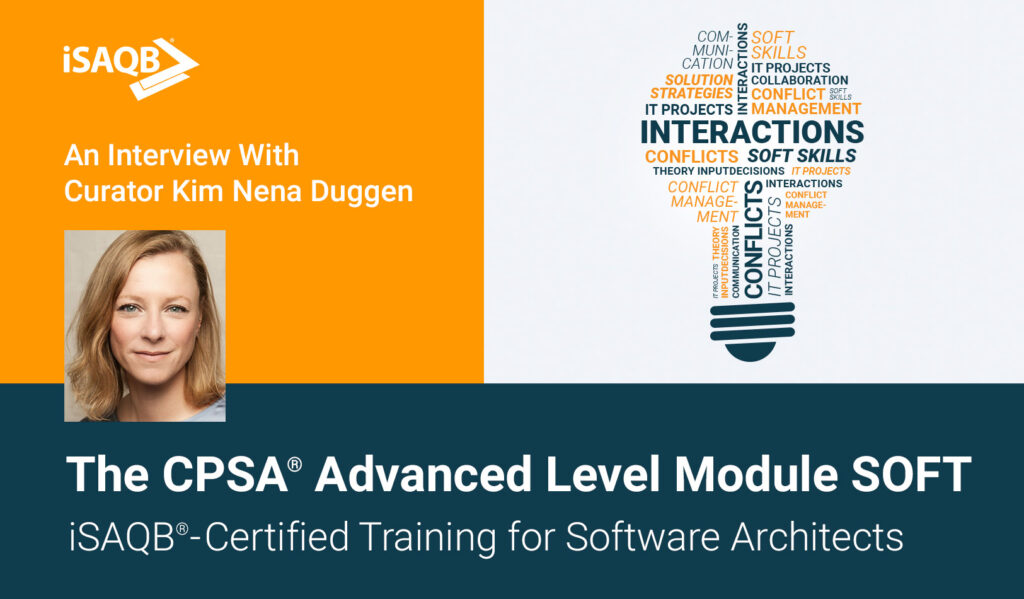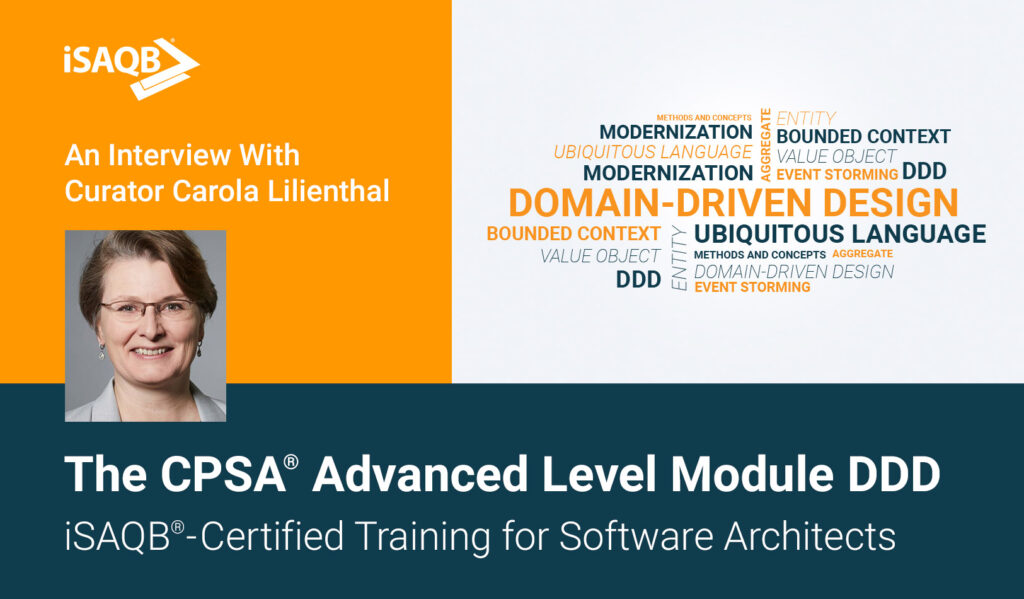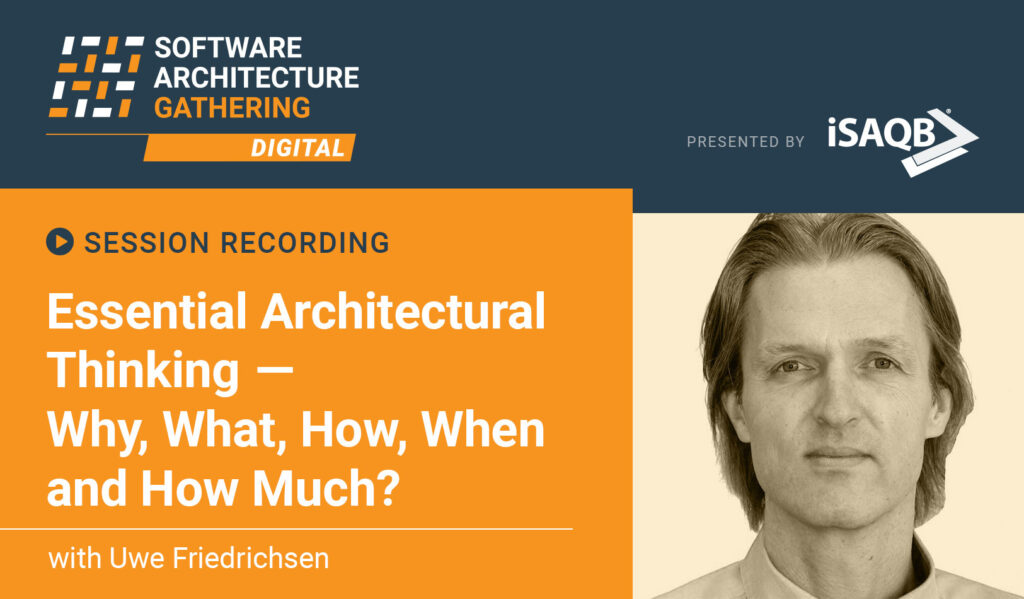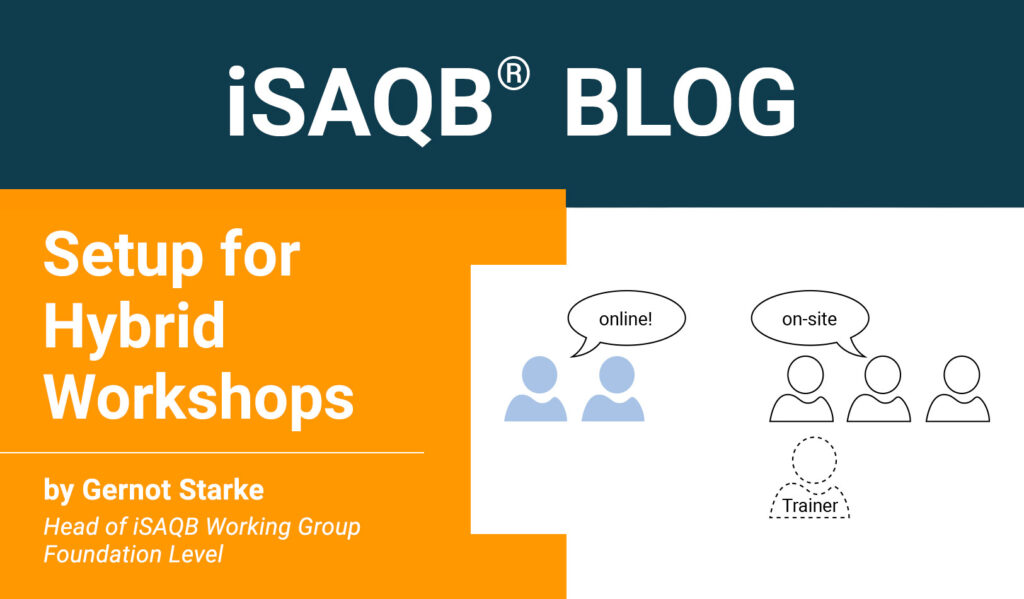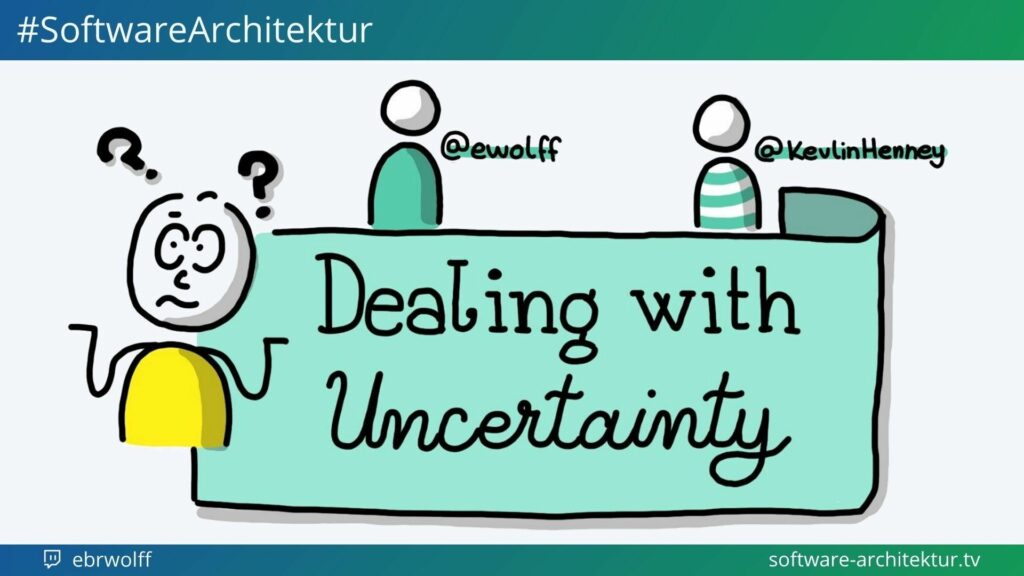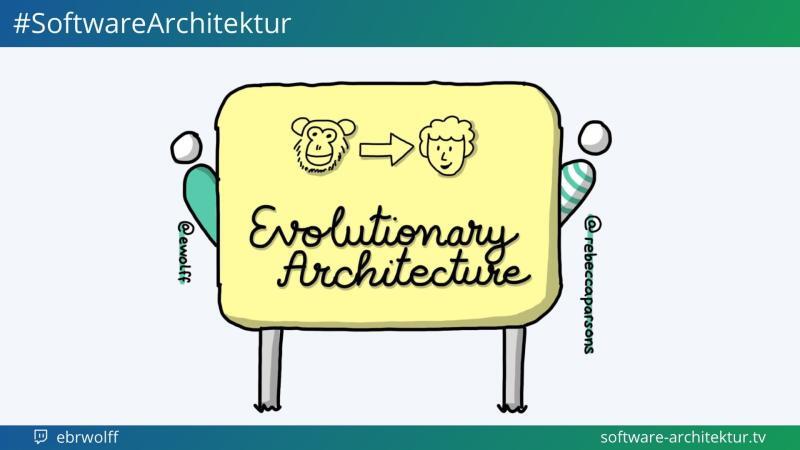Why Should I attend the CPSA® Advanced Training IMPROVE (Evolution and Improvement of Software Architectures)?
What is behind the CPSA Advanced Level module IMPROVE, one of 17 trainings that participants of the Advanced Level can choose from? The CPSA Advanced Level is the second step within the iSAQB’s multi-level CPSA program (Certified Professional for Software Architecture) after the Foundation Level. Gernot Starke, iSAQB member and curator of the Advanced module…
Read MoreWhy Should I attend the CPSA® Advanced Training BLOCKCHAIN (Low-Trust Consensus in Decentralized Applications)?
The CPSA Advanced Level is the second step within the iSAQB’s multi-level CPSA program (Certified Professional for Software Architecture). One of the 17 training options of the Advanced Level that participants can choose from is the module BLOCKCHAIN – Low-Trust Consensus in Decentralized Applications. In this informative interview, Lars Hupel, curator of the Advanced module…
Read MoreWhy Should I attend the CPSA® Advanced Training Soft Skills for Software Architects (SOFT)?
The CPSA Advanced Level is the second step within the iSAQB’s multi-level CPSA program (Certified Professional for Software Architecture). Participants can choose from 17 trainings, so-called modules, in three areas of competence – technological, methodical, and communicative competence. The most important training when it comes to communicative competence is the Advanced Level module SOFT (Soft…
Read MoreAttending the iSAQB® CPSA® Advanced Training in Web Architecture (WEB) – Who Should Take The Course and Why?
Which audience does the module WEB address? The training course is meant for people who are looking for a somewhat broader overview of the huge subject that is “web”. The goal is to illuminate and classify as many existing standards as possible as well as different approaches to architectures on as many levels as possible…
Read MoreAttending the iSAQB® CPSA® Advanced Training in Domain-Driven Design (DDD) – Who Should Take The Course and Why?
Which audience does the module DDD address? The module DDD is aimed at software architects and software developers who not only want to feel at home in technology, but who would also like to learn about methods and concepts that support them in deeply understanding the domain and modeling it in software. This module is…
Read MoreAttending the iSAQB® CPSA® Advanced Training in Functional Software Architecture (FUNAR) – Who Should Take The Course and Why?
Which audience does the module FUNAR address? The training course is meant for all software architects who are curious about approaches to software architecture that are fundamentally different from traditional OOP-based approaches (and more effective, of course). What is the relevance of the module for the professional practice of software architects? That depends: Functional…
Read MoreSAG 2021 Session Recording: “Essential Architectural Thinking”
There is a lot of confusion regarding architectural work these days. When? How much? Who? Tons of heated debates, and nobody is asking the essential question: Why? But without asking Why, all the other questions are futile. Thus, this session at the Software Architecture Gathering 2021 by Uwe Friedrichsen will start by asking: *Why* do…
Read MoreSetup for Hybrid Workshops
Abstract Hybrid: From Latin hybrida, a variant of hibrida. Something of mixed origin or composition; often, a tool or technology that combines the benefits of formerly separate tools or technologies. (Source: Wiktionary) Hybrid workshops allow people online and on-site to collaborate, both in education/training, or other types of meetings. Before COVID-19, workshops and trainings were…
Read MoreKevlin Henney on Dealing with Uncertainty
Software architects are faced with uncertainty more often than we would like to admit. How can we deal with it — or can we even make it disappear? In this episode of Eberhard Wolff’s Software Architecture in Stream, Kevlin Henney talks about uncertainty and how to deal with it. Kevlin Henney has been a member…
Read MoreRebecca Parsons about Evolutionary Architecture
The architecture of a system has to change over time. In this episode of Eberhard Wolff’s Software Architecture in Stream, evolutionary architecture and why it is important will be discussed. Rebecca Parsons and Eberhard Wolff will talk about patterns and principles to build architectures that stand the test of time. Dr Rebecca Parsons co-authored the…
Read More


